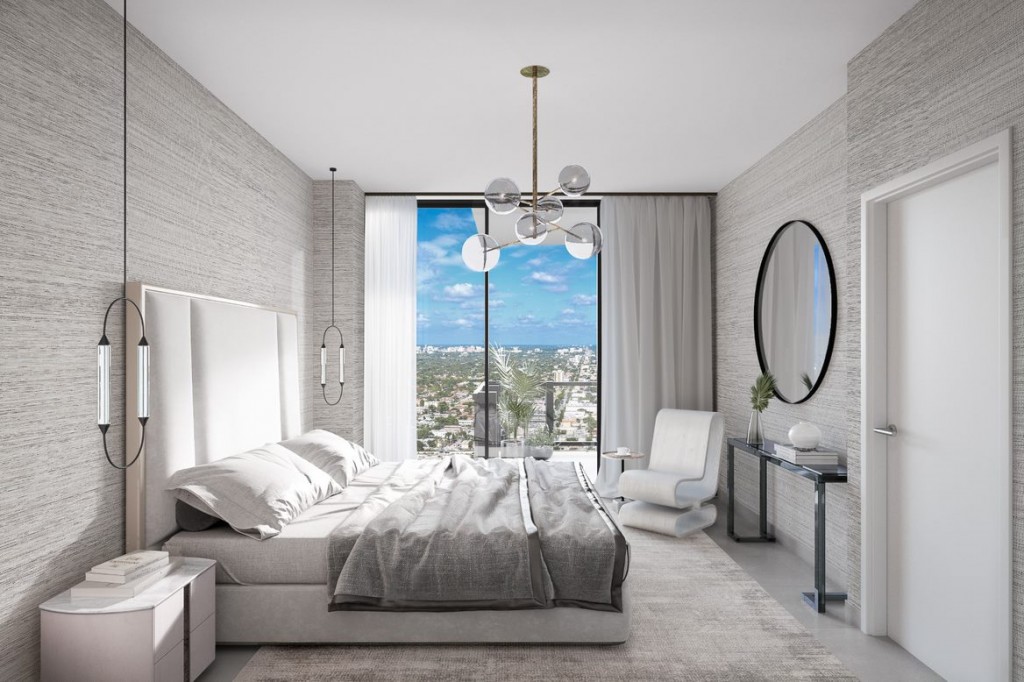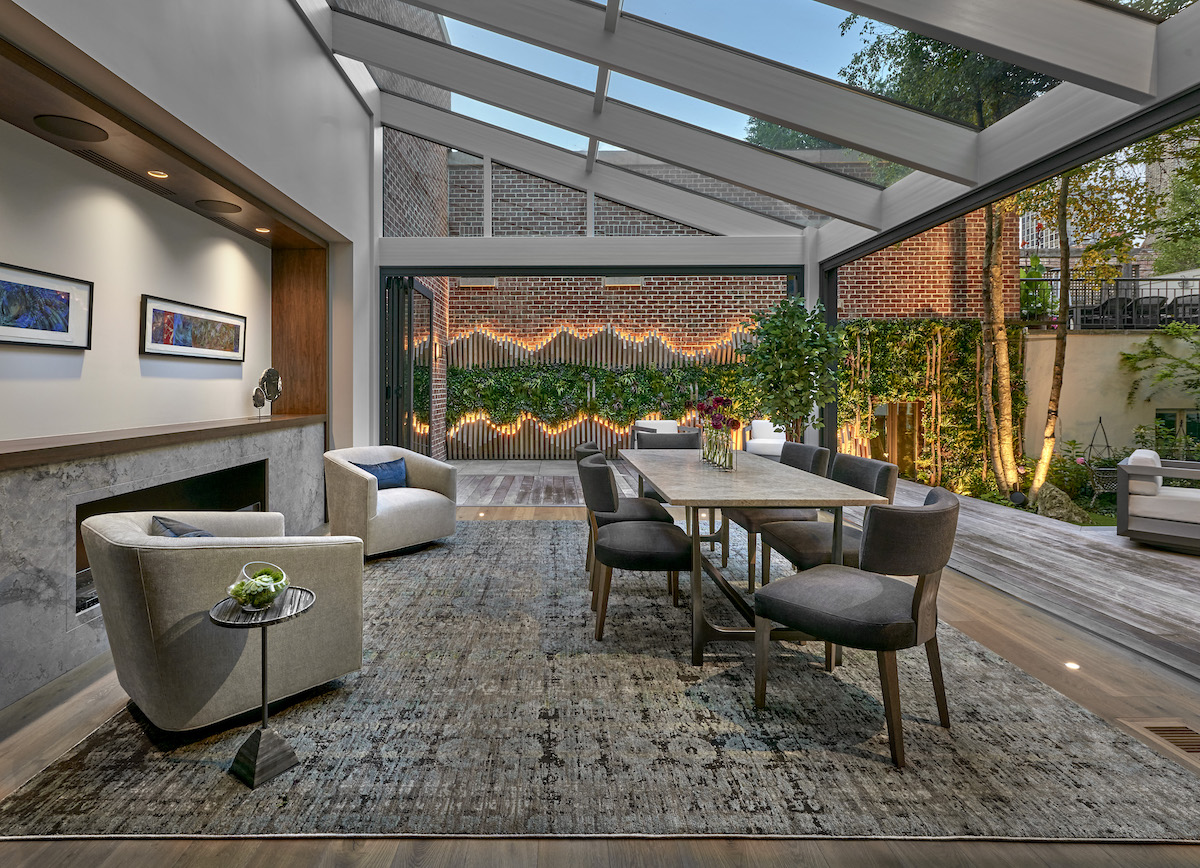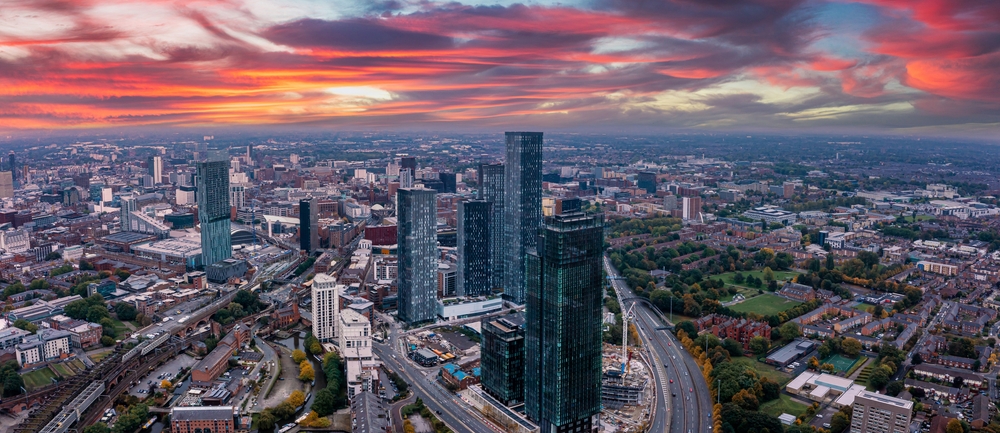Cheryl Eisen, founder and CEO of Interior Marketing Group (IMG), launched her company in 2007. The New York-based firm quickly became highly sought-after for its interior design and staging projects. Eisen has expanded the reach of IMG to other major markets like Seattle, Los Angeles, Chicago, and South Florida.

Cheryl Eisen
Photo Credit: Kevin Sikorski Photography
In Miami, IMG was tasked by Swire Properties to do the virtual staging of its residences at Reach and Rise at Brickell City Centre. The digital renderings confound the eyes of those who see them for the first time, thinking they are looking at photographs of an actually furnished space.
We welcomed Eisen for a one-on-one interview to talk about her company’s trailblazing projects as well as the collaboration she is doing with Swire Properties.
What was your inspiration for developing digitally staged units for Swire Properties at Rise Residences?
We wanted to bring a New York look to this development. We felt like, overall, everything was sort of looking alike on the market. With such a unique brand as Reach & Rise, we wanted to bring some warmth and differentiators in[to the residences]. We were designing the space during COVID and the thing that made sense was to virtually stage it with pieces that we actually have in our inventory, and if buyers came in and loved it, we could install that exact look in a matter of weeks.
 Photo Credit: Courtesy of Swire Properties
Photo Credit: Courtesy of Swire Properties
HR: Why do you think new development projects in South Florida like Brickell City Centre are choosing to work with a New York-based design firm?
CE: The enormous insurgence of New Yorkers fleeing to Florida. They are used to a certain edge in terms of design, and we brought that to South Florida, to Reach & Rise, and are attracting the New York buyer. In addition to that, the goal was to, again, differentiate what is in Reach & Rise versus every other condo in South Florida which is like, “white on white on white.” We have brought in a New York vibe with some textures, large modern art, and unique light fixtures that create a “wow” moment, and something that looks completely different when you are searching online for listings. These really stand out and capture the eye. That is the goal in marketing.
HR: What impact did 2020 have on your projects? More? Bigger?
CE: In New York, it was different than in Florida. People were afraid to have anyone come into their buildings or into their homes, creating a real challenge in terms of installing furniture into spaces. We had to pivot very quickly and come up with virtual designs because they still had to sell. So we created a completely unique virtual inventory of our own products. We had to market them in a way that represented their unique look and design style. In addition to that, we have several digital marketing tools within these renderings that enable a buyer to have an immersive experience. We can do 360’s, a virtual tour with goggles, or just on the screen. The best we could do, if we could not sell furniture in a space while a buyer walks around, was to install a digital visualization so that they can go online and get a sense of what it is like to be in that unit; to live in that unit; to function in that unit.
HR: Homes had to sell and you needed to bring them to life. Do you have a success story that you can share with us?
CE: We worked with a very well-known South Florida agent to digitally design a unit on Prive Island. It was beautiful but completely empty; very cold and austere We digitally furnished it beautifully, and within 12 days on the market, it sold and the buyers were interested in buying the virtual furniture. That was a very fast deal and it was definitely thanks to the virtual staging, which gave the empty space a real feeling of home and luxury.
 Photo Credit: Courtesy of Swire Properties
Photo Credit: Courtesy of Swire Properties
HR: For the luxury buyer, Florida is usually a 2nd home market. How do turn-key homes attract these high-end residents?
CE: Now more than ever- with furniture hard to get because of the domino effect that happened with manufacturing and distribution overseas, and even locally- it makes more sense just to move right into a furnished space, especially if it is your vacation home. Why spend a year searching for furniture, going into furniture stores and have a designer help you shop piece by piece? In other words, COVID has changed everything, the way we buy and the way we think about homes. It makes sense, not only for secondary homes, vacation homes, but it is also happening more and more in New York and other markets.
HR: Are you expanding to South Florida and to other markets as you said?
CE: We are. There are some definite growth areas all over the country. Boston was a huge growth area this year and so was San Francisco. We can service any city, any state in the United States. We have done projects in Green Bay, Wisconsin. We are doing a building in Seattle, and we have worked in LA, but we’ve been working in the South Florida area for a few years now; it’s one of our favorite secondary markets.
HR: You have had signature projects over the years, including at the Visionaire, the Puck Penthouses, and multiple projects that have been featured on TV shows like "Million Dollar Listing" and "Keeping Up with the Kardashians". Having set the bar high for yourself, what did you challenge yourself to do for your major South Florida debut?
CE: We are probably the best-known brand in the New York metro area. So, yes I agree. In South Florida, a lot of brokers that work in both markets know of us, but we wanted to come in and bring the same level of brand recognition and elevated style to South Florida. We wanted to come in with a big splash. The first project we did in South Florida was the largest penthouse in South Beach. The asking price was $50 million and it was an enormous triplex. It was a resale, so it was a huge before-and-after impact, but it was not a brand new development. The views were gorgeous, the space was beautiful. There are very few stagers and interior designers in South Florida. There are probably the top three that everyone knows and they design and stage every property, of which there are many. It is hard to have things look different when it is the top three players staging and designing everything. Our unique look came in to be completely different than everyone else’s, and that was really the goal. I think we have achieved that.
 Photo Credit: Courtesy of Swire Properties
Photo Credit: Courtesy of Swire Properties
HR: How has the pandemic affected the furniture supply lines and how have you adjusted?
CE: Luckily, we had started buying product in bulk overseas a couple of years ago so we have a pretty substantial inventory. We also started designing our own product- which we also have a significant inventory of- so our stuff is unique and in our warehouse. However, as soon as the pandemic hit, it hit first in China, and that is where most people, -between China and Italy- get their furniture. So the supply chain and manufacturing came to a complete halt for a while, creating a sort of domino effect across the rest of the industry as everyone was figuring out how to recover and how to function. When you cannot buy furniture, you are stuck with whatever you have on hand. We are lucky to have a large inventory on hand so we have been okay with it, but everyone else in the industry seems to be hurting for product. In normal circumstances, if you try to buy furniture, it is probably anywhere from two to twelve weeks [to receive]. Right now, it is six months out before you receive your product. That will continue to be a lag for a few more months as things get back into the swing in those countries. But yes, it was a huge challenge and created a huge ripple effect.
HR: Would you want to create a completely new style for Miami? Your signature is New York but what about a Miami IMG style?
CE: Absolutely, we would love to create a signature style that was specific to the Miami market. Brickell feels like Manhattan as much as possible and that is why I love staying in Brickell whenever I come to Miami. That already has a sense of our vibe. It is very city-like, very Manhattan but then out in the suburbs are houses. There seem to be two types of houses right now in terms of architecture. We want to create some visual distinction in those two styles by creating a unique interior. Again, there are about three main designers out there [in Miami]. We are coming in with a completely differentiated look and taking those two standard architectural styles to create something completely new with them by differentiating the interiors with our IMG New York City-type of look.
 Photo Credit: Courtesy of Swire Properties
Photo Credit: Courtesy of Swire Properties
HR: Do you feel as if the adjustments to digitally staging units will be the future of design? Or will there be a shift back to the more classical style of staging and designing?
CE: I think that is where we were headed to an extent, but I think it accelerated that process. Virtual staging or digital rendering in a marketing sense is the opener, it catches people’s eyes and it makes them want to come to the space to see it. The closer is the staging in person because when you are in love with the space that you saw digitally and you show up to an empty space, there is a letdown and, “Where is that space that I fell in love with?” But if you can show up and see that same space in person and fall in love with it and move right in, that is the closer.
We also have a product where you can change the floors from wood to marble and more. The wall color, the wall coverings, you can change any aspect of the home digitally by pressing a button, making your own on-site decisions immediately, which is great for developers. If you are showing the optionality for new spaces and sales offices. You can choose this cabinet, that cabinet in real time, digitally. You can see what it would look like to live in that space with different options. I think it is going in that direction, but there will always be the need for the actual physical staging because A, the peace of moving right in and B, because when you show up, you do want to feel that warmth of just moving right in and having a home versus an empty space.
HR: So, the digital staging helps to get to the closing stage as you mentioned, right?
CE: You capture their attention. That makes them want to come in and see the space in person. It brings people in which is very important; it is step one. The closer has to be when they get there, when they open the door to have that emotional reaction, “Wow, this is where I want to be.”
 Photo Credit: Courtesy of Swire Properties
Photo Credit: Courtesy of Swire Properties
HR: What tools or products do you have to streamline the staging process, and what reactions do you get from the buyers?
CE: We have a new product called Rendered-to-Reality, which we created to help get a home on the market quickly. We render it and then when we stage it in person a couple of weeks later. People are pretty shocked when they walk in and it literally is a seamless transition from the digital rendering to what they see in person. If they have come to see it, it is because they loved the rendering, and when they walk in, it is exactly what they saw in the rendering. They are really floored by that.
HR: How do you feel about working with Swire Properties and its residences?
CE: Swire is amazing. These buildings [Reach and Rise] are next level. They have built this whole city in Brickell, and it is so modern, warm, and elevated. It is just so impressive how they have built an entire community with these beautiful buildings and with wellness in mind.






